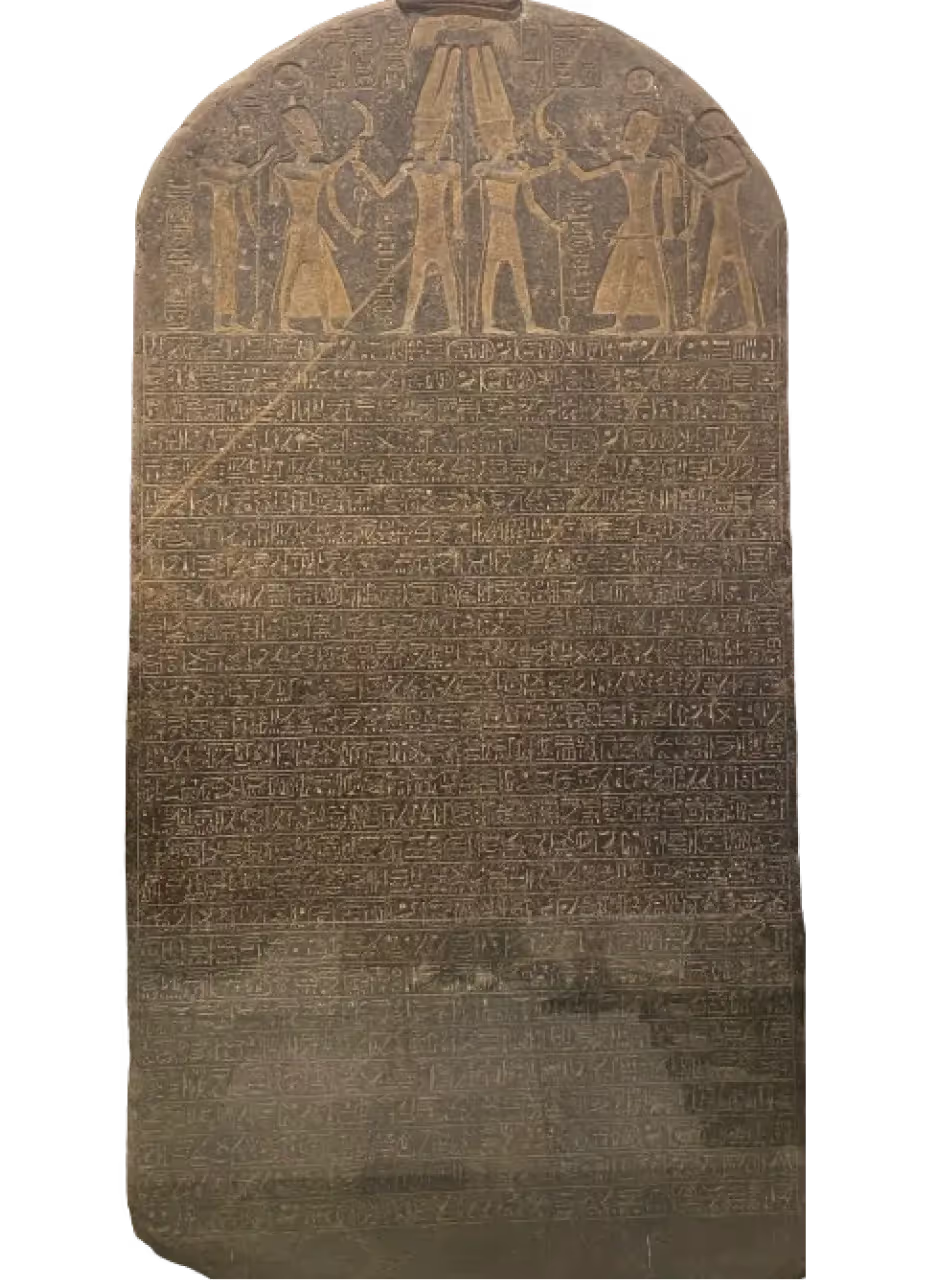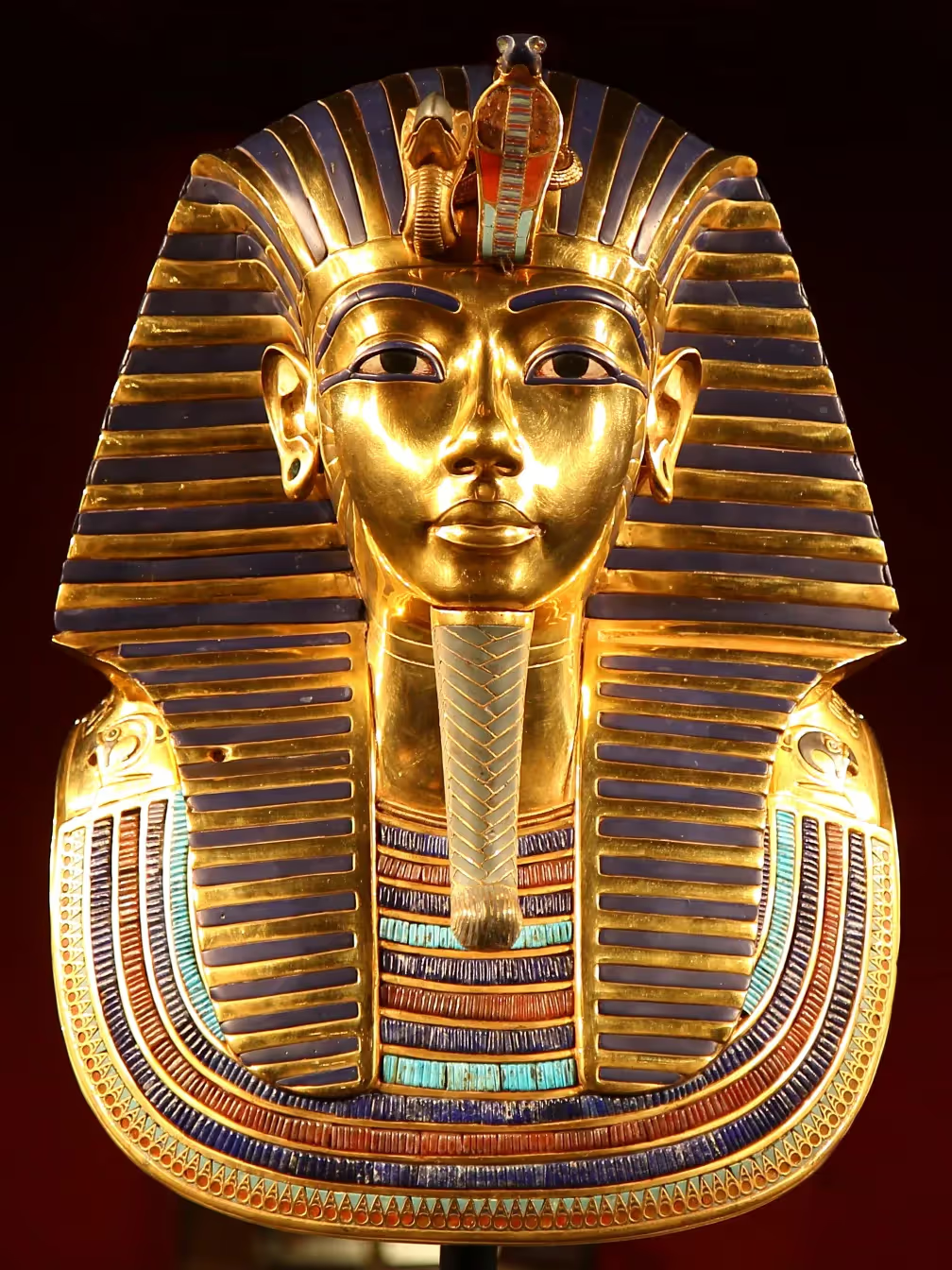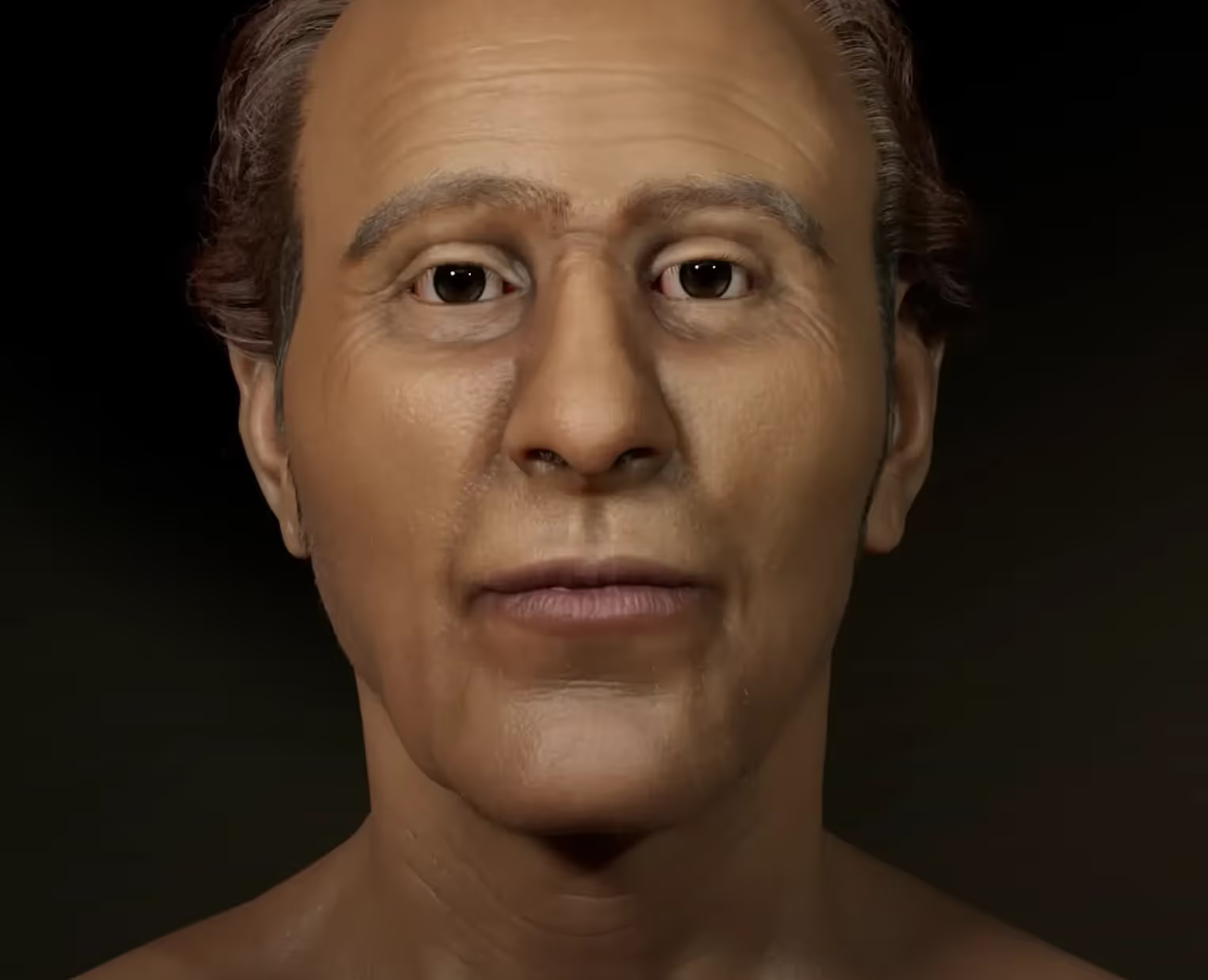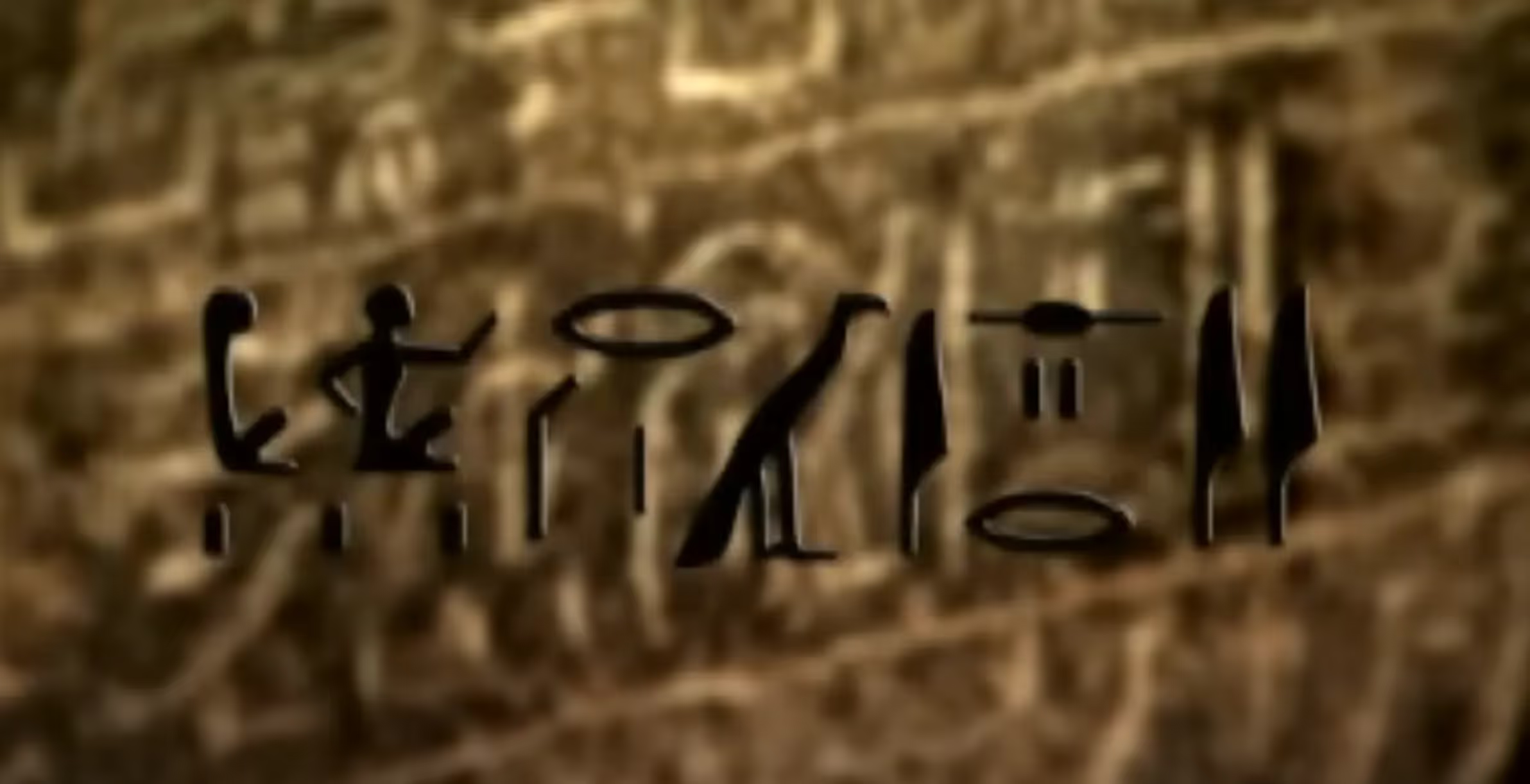La stèle de Merneptah
Le pharaon égyptien Merneptah a rapporté sa conquête du peuple Israël en 1207 avant notre ère, sur cette stèle de la victoire appelée la stèle de Merneptah. L'inscription se lit comme suit: "Canaan est pillé... Israël est dévasté; son grain ne l'est pas."
Comme le Pharaon de l'Exode a souvent été identifié comme Ramsès II, Merneptah était son successeur et parce que la stèle nomme le peuple d'Israël dans le pays de Canaan, elle corrobore la chronologie biblique de l’implantation israélite.
Cette stèle est parfois appelée la "Stèle d'Israël" car elle contient la plus ancienne référence extrabiblique faite à Israël en tant que peuple. Dans les descriptions militaires égyptiennes, "son grain ne l'est pas" est une description fréquemment utilisée pour les endroits conquis et semble faire référence à l’ancienne pratique courante de l'armée victorieuse de détruire les récoltes.
Aperçu
"Canaan est pillé... Israël est dévasté; son grain ne l'est pas."
Le pharaon égyptien Merneptah a rapporté sa conquête du peuple "Israël" sur cette stèle de la victoire. Chronologiquement, si les Israélites ont erré dans le désert pendant 40 ans, comme conté dans la Bible, alors l’Exode pourrait avoir eu lieu aux environs de 1250 avant notre ère, pendant le règne de Ramsès le Grand (1279-1213 avant notre ère).


















.avif)
